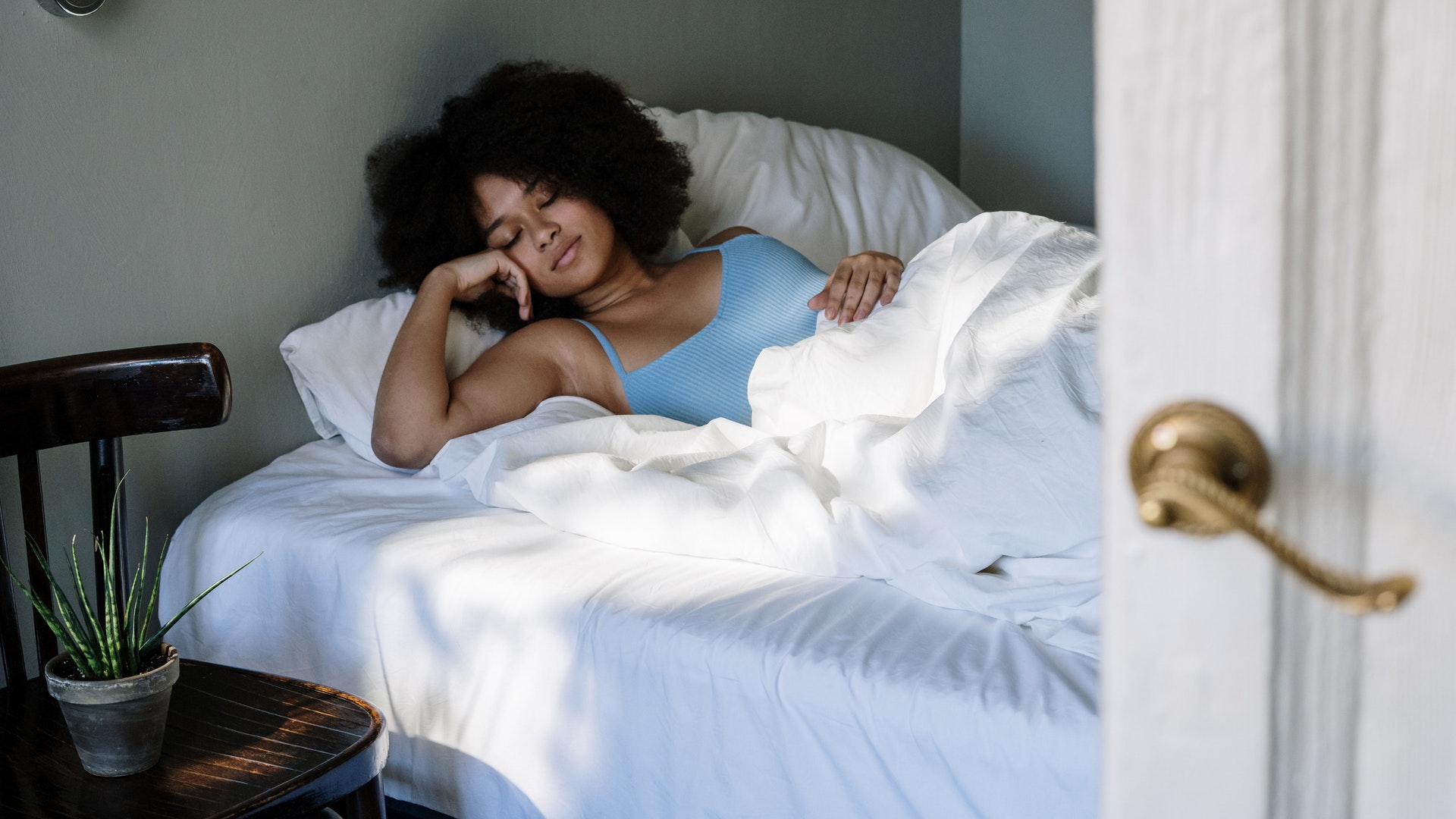Sleep has a tremendous impact on our daily lives. No matter what you do for a living, if your body doesn’t rest properly and following its specific needs, your performance in life will be subpar. Fortunately, the vast majority of people don’t need any overcomplicated treatments to achieve quality sleep. Here are the most important questions about the matter answered by sleep professionals.
What is Sleep Hygiene?
Sleep hygiene is a general term used to describe the actions and habits that can be taken to make sure you get enough sleep. The goal of sleep hygiene is to promote healthy sleep habits, which will in turn reduce the risk of poor mental and physical health. Some examples of bad sleep hygiene include drinking caffeinated beverages, watching TV, or consuming large amounts of food or alcohol before bedtime. On the other hand, good sleep hygiene habits include falling asleep without watching TV or using gadgets, going to bed at the same time every day, and avoiding naps during the day.
What are the health benefits of quality sleep?
Poor sleep health and deteriorating levels of mental wellbeing have become more common over the last decade, especially as consumers have become more open about such issues. FMCG Gurus research highlights this as only 56% of global consumers state they are satisfied with the quality of sleep they get on a daily basis. Improving sleep quality has become a priority for consumers as they look to address their overall health and wellbeing. Consumers are adopting a holistic health approach to life recognizing that all aspects of health are interlinked. One key health benefit to good quality sleep is a better digestive system. The research shows four in ten consumers say that there is a direct link between good digestion and good sleeping patterns. Therefore, by improving the quality of sleep consumers believe you will not only improve mental wellbeing but also other key health areas such as digestive health.
What are the most common sleep disorders?
The most common sleep disorders are Insomnia, Obstructive sleep apnea, Restless legs syndrome, and Narcolepsy. Insomnia is the most common sleep disorder, with around 30% of adults experiencing short-term insomnia. The first-line treatment for Insomnia and other sleep deficiencies is CBT-I (Cognitive Behaviour Therapy for Insomnia) and Sleeprate provides a digital CBT-I solution to improve sleep, for enterprises and individuals.
What constitutes an ideal environment for good sleep?
Sleep may seem like a time to finally let your brain and body “shut off” following a busy or stressful day, but it is well-established that the brain is working even harder during sleep to perform important processes related to health and performance. In order to get the most out of your time in bed, it is important to create an ideal sleep environment that supports optimal recovery and the efficiency of these processes. In our “always-on” world, many people use their bedroom for work, eating, or checking their phone just minutes before their head hits the pillow, which keeps the body in an aroused state. An ideal sleep environment includes a dedicated room for sleep, maintaining a room temperature between about 68-70 degrees F, minimizing light (including those emitted from televisions and other electronics), and noise stimulation. It is also recommended to establish a consistent pre-sleep routine and sleep schedule to help fine-tune the body’s natural and internal clock (circadian rhythm).
– Biostrap
How important is it to set betimes?
It’s very important that people of all ages have mostly set bedtimes. While it doesn’t have to be exactly the same each night, you do want to try to get to bed within about an hour of your normal bedtime every day of the week (weekends included). You will fall asleep faster when your body’s circadian rhythm is predictable, which will also help you to wake around the same time each morning too.
How does stress impact sleep?
Stress and sleep don’t play well together. Specifically, stress is associated with the rise of cortisol, also known as the “stress hormone.” When cortisol levels elevate, it disrupts your body’s natural sleep-wake cycle, meaning it’s harder for you to both fall and stay asleep. The most effective way to manage your cortisol levels is by practicing relaxation breathing techniques such as the 4-7-8 method or the Papworth method.
What would be some good relaxation techniques?
A great way to relax and calm the mind before bedtime is to practice some deep breathing techniques. Box breathing or the 4-7-8 breath are two techniques I use frequently to activate the parasympathetic nervous system and put you into a more restful state. Make sure not to overeat or consume too much alcohol before going to bed as processing a heavy meal and metabolizing alcohol can interfere with deep sleep. Avoiding exposure to screens and blue light 1-2 hours before bed is probably one of the best (and most challenging) things you can do to relax and ensure better sleep! Put down the phone, pick up a good book and some calming essential oils for a good night’s rest.
– Dr. Zarya Rubin, MD, Wild Lilac Wellness
How can sleep-tracking apps and devices help me monitor and improve my sleep patterns?
Sleep tracking has its pros and its cons. Once you understand the cons, you can better take advantage of advanced sleep-tracking devices like the SleepSpace app. The major advantage is that you can get more in touch with your body. One of the classic examples is identifying alcohol’s dramatic detrimental impact on getting quality deep sleep. But you can also use the trackers to identify how various other sleep hacks, such as blackout blinds and a smart sound machine, can improve your sleep quality.
When it comes to the negative side, there is a new term for this in sleep science called ‘orthosomnia,’ which is when data from sleep trackers ends up making people more anxious about themselves, and they end up sleeping worse. The key here is to take the sleep trackers with a grain of salt. First and foremost, listen to your own body and use the trackers as an assistant. If the trackers are bringing you anxiety, feel free to just ignore them for a while.
– Daniel, SleepSpace
What type of mattress is best for quality sleep, and why?
While there is no one best mattress for everyone, the following are a few types of mattresses that are highly recommended for the unique qualities they possess in promoting quality sleep.
Memory Foam Mattress: Memory foam mattresses are known for their ability to contour to the body’s shape, providing excellent pressure relief and support. They can help alleviate discomfort, and reduce tossing and turning during the night. Memory foam also absorbs movement, which can be beneficial for couples sharing a bed, as it minimizes disturbances caused by one person’s movements.
Latex Mattress: Latex mattresses are made from natural or synthetic rubber, offering a supportive and responsive sleep surface. They provide good pressure relief, and conform to the body without the sinking, quicksand-type feeling associated with some memory foam mattresses. Natural latex mattresses with an open cell matrix also have good breathability, keeping you cool throughout the night.
Hybrid Mattress: Hybrid mattresses combine the support of an innerspring system with a comfort layer of memory foam or latex. These mattresses often have individually-pocketed coils that provide targeted support, and help with motion isolation. Hybrid mattresses can be a good option for those who want a balance between support and cushioning.
Since personal comfort is so subjective, the type of mattress that is best for quality sleep can vary depending on individual preferences and needs. Sleeping position, body weight, and any specific health considerations you may have (e.g., back pain, allergies) should each factor into your decision.
Elizabeth Magill – LatexForless.com
How important are beds and pillows for quality sleep?
The type of pillow and mattress that you sleep on can have a significant effect on your quality of sleep. Without proper pressure relief and spinal alignment, you could face sleep loss and physical aches and pains. Finding the pillow and mattress that’s best for your body type and preferred sleeping position will support a good night’s sleep.
What can you do on your day, that will help you sleep better?
I believe getting to sleep quickly and staying asleep has much to do with a calm mind. When you are thinking about tasks, to-do’s, and tomorrow, your mind is not calm and you will have trouble getting to sleep. Learning to meditate late in the day, putting down your mobile device in the evening, and removing stimulation late in the day are all quick hits to help to get rest. There is a concept called sleep hygiene.
Is cognitive-behavioral therapy good for sleep?
CBT-i (cognitive-behavioral therapy for insomnia) is incredibly beneficial for improving insomnia. It deals with how we perceive things (cognition) and how we respond (behaviors). For insomnia, we work to modify beliefs and feelings around falling asleep, staying asleep, and overall sleep quality. The behavioral component looks at the things people do before they go to bed, as they try to fall asleep, return to sleep, and after waking.
These tips can probably help you improve the quality of your sleep since they’re tried and true methods used by professionals, but nearly everyone has an occasional sleepless night. If you find yourself struggling continuously, it’s always a good idea to contact your doctor. Identifying and treating any underlying causes can help you get the better sleep you deserve.




